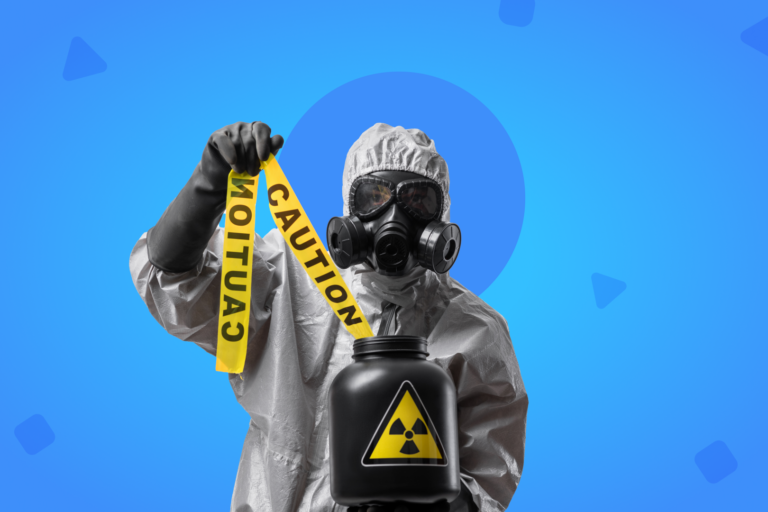The importance of these technological solutions summarize itself in their ability to optimize processes, reduce the probability of error and more efficiently control the strict health protocols that are required of international travelers today.
The optimization and continuous improvement of work, both on a day-to-day basis and in strategic planning, is an essential condition for the success of any company. The hotel industry is no exception, especially in a scenario where each of its actors must maximize efforts to recover activity rates prior to the pandemic.
One of the best strategies to achieve this objective is to use software that allow us to carry out digital checklists. These are programs that are relatively simple to use, but that allow us to draw up an effective list of actions to be carried out, or objectives to be achieved, which are marked at the very same moment they are achieved.
In this way, they provide a general and concrete vision of the status of the tasks, as well as their degree of progress. Consequently, they improve both productivity and efficiency, and are a fundamental element in optimizing the many processes of a hotel company.
General concepts
We can define a digital checklist as a tool that allow us to draw up an organized list of the elements necessary to achieve the goals set for any activity or task. Once they are fulfilled, they should be immediately marked on the same list. This is the only way to know, quickly and with a high degree of certainty, that the objectives are being met.
This not only saves time and material or human resources, but also optimizes monitoring tasks.
These characteristics allow a digital checklist to become a very valuable tool for the hotel industry, since it allows inspecting and improving both the quality and comfort of the services offered, as well as compliance with hygiene and sanitation protocols, among many others variables. The latter, in particular, is of vital importance in the current health contingency scenario due to the SARS-COV-2 pandemic.
Thus, for example, through an appropriate checklist that meets the necessary quality requirements, the hotel staff can carry out daily inspections and keep up to date with the list of essential duties. This helps to verify and control that each room and area of the establishment is maintained according to standards of excellence, including common spaces, reception, dining rooms, and public bathrooms, among other facilities.
In the same way, it allows to review and verify that all the procedures for an adequate management control are implemented correctly. This translates into the immediate optimization of the service, which reflecting, consequently, in the increase of the loyalty and preferences of its regular and potential customers. At the same time, increase positive reviews and improve ratings on different international publications or specialized websites.
Specific benefits
The direct advantages of a digital checklist applied to the hotel industry derive from the following operational functions:
Automation
It is one of the main functions of a checklist. If used regularly, the checking and verification process becomes automatic for the personnel in charge, thus gaining agility, speed and efficiency. For example, it helps to control that the maintenance of elevators, or the sanitation of food areas, are within the stipulated deadlines.
Failure reduction
A checklist helps to minimize errors in a simple way. For example, to guarantee with absolute certainty that the rooms will be ready when the passenger arrives at the hotel, or that the daily cleaning will be carried out at the indicated time.
This is because, as they are tools that work in real time, the progress of the set objectives is immediately checked. This ensures that the personnel in charge of supervision verify that the actions are on time, that tasks are not unnecessarily repeated, and that the periods determined for each of them are appropriately distributed.
Organization
An adequate digital checklist allows systematizing the elements to be controlled and specifying them according to various variables (such as quantity, time, date, quality standard, etc.). In addition, it allows knowing the progress of the objective, which facilitates the organization, as well as the order of execution of the tasks.
In this way, all parties involved in the tasks, both executors and supervisors, will know what to do, when and how. For example, if a passenger arrives who must undergo a PCR test in the hotel, the checklist will indicate the time and place assigned for said task, as well as the area where the person must wait for the results, and the subsequent procedures following.
Long distance communication
As checklists are easy to use and understand solutions, they are also useful as communication tools. For example, to connect online two or more locations of the same hotel chain located in the same city. Thus, it will be possible to standardize processes and optimize work for, for example, emergency transfer of a passenger, or to exchange supplies and equipment.
Practical examples
The usefulness of checklists in the hotel industry can expressed in various specific actions and tasks, such as the following:
Room preparation
It allow us to have guest rooms ready and ensure that they are clean and undamaged. This action checks that the items are in good condition, and can be done before check-in and after checkout. In this way, the staff ensures that these spaces meet the high level of service standards that every hotel of international category should have.
Control of cleaning staff
It helps to assess, for example, whether employees wear appropriate uniforms and practice good personal hygiene. It also allow us to review the different areas of the hotel (such as reception, smoking area or public bathrooms, among others), and verify if they are clean, disinfected and presentable.
Cleanliness and hygiene
It acts as a guide for the proper cleaning of the bathroom in each room, as well as to verify if the staff follows standard cleaning procedures. It also helps inspect for items in the restrooms, public or in each room that need to remove, renovate, or repair.
Inventory
The checklists are valuable to create a complete list of supplies, including items such as food stocks, toiletries, and other complementary items for staff work or guest care.
Covid-19 protocols
They allow from applying the different steps for the sanitization of rooms and common spaces for staff, to the adequate control of the entry and exit protocols of international passengers, who must comply with mandatory quarantines.
All these advantages, added to the attached functionalities for capturing photographs or preparing reports in the field, which the modern digital checklists have, position this tool as a fundamental ally for the operation of hotel companies.
Such benefits are part of its ability to optimize the business organization, reduce the possibility of human errors, and provide greater security to all operational processes.
In the same way, they ensure full compliance with the legislation and ordinances of each country, especially health regulations. Essential aspect to control, for example, compliance with the strict health requirements that each traveler from abroad must meet. All this, finally, translates into greater productivity, effectiveness, safety, management capacity and efficiency.






